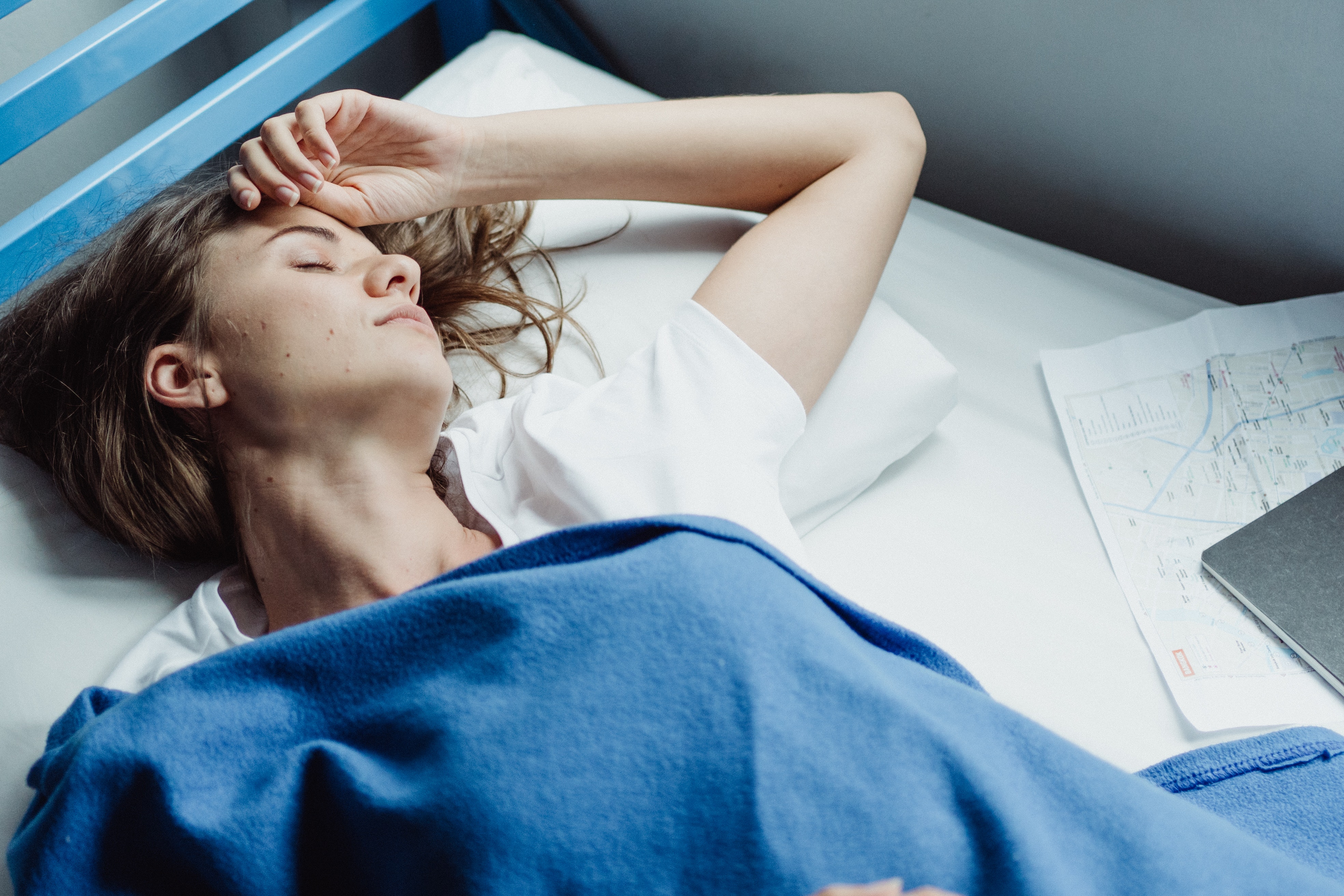You have probably heard the classic question: Which came first – the chicken or the egg?
You can ask the same question with stress and poor sleep, because stress leads to poor sleep, which in turn leads to a lower stress threshold and more stress, and suddenly you have ended up in a vicious circle, which only gets worse and worse.
In the Stone Age, stress was vital
Today, most of us think that stress is something negative, but a long time ago, stress was a pretty smart condition, which ensured the survival of humanity. If our Stone Age ancestors met a bear or an attacking enemy, the body immediately went into alert and prepared for battle or flight.
Specifically, within a few seconds, large amounts of the stress hormones adrenaline and cortisol were released, which gave our ancestors extra resources to deal with the situation. Adrenaline made them alert and focused, while cortisol increased blood flow and sent extra energy to the muscles so they could reach maximum strength.
Short-term stress gets you on top
Today, very few of us encounter bears in everyday life, but the body does not know that. It still reacts like in the Stone Age and makes you perform at its best if you are exposed to short-term stress, for example if you are going to graduate, give a speech or finish a big task at work.
The smart thing is that when the dangerous situation or demanding task is over, the brain makes sure to lower the amount of stress hormone again, and the body finds its way back to its normal level.
Prolonged stress hurts you
The only problem is that many people today suffer from long-term stress, and that is a completely different matter.
Prolonged stress arises when there is “danger and travel” for a long time, which usually happens when we are exposed to demands and tasks that we do not have the ability or time to cope with.
If you are constantly walking around with elevated amounts of adrenaline and cortisol, it will strain your body. For example, it damages your immune system, makes your memory worse and reduces both the amount and quality of your sleep.
And who can blame the body for making mistakes when you can not relax and fall asleep, when the many stress hormones say that “there is a bear in your bedroom”? Poor sleep is often one of the first signs that you are suffering from stress.
Poor sleep increases your risk of stress
Unfortunately, the reverse is also true. You can definitely tolerate a night, or two, with poor sleep, but if you sleep too little for a long period of time – for example because you watch TV or on social media until well into the night – you increase the risk of being affected by stress.
Sleep is extremely important for your body, because when you sleep, a long series of processes take place that help to keep you healthy, happy and alert. For example, your brain is cleared, your immune system is maintained, your muscles are built and your memory is refreshed.
If the body does not get the sleep it needs, all these processes will limp, which stresses the body. It makes you worse at learning new things and at tackling new tasks and challenges, for example at work. It stresses you out even more, and makes it even harder to achieve a good night’s sleep, and then you’re seriously stuck in a vicious circle.
You can do that
The short, simple and preventative answer to stress is: Make sure you get your night’s sleep! Sleep researchers generally advise adults to sleep 7-8 hours a night – this is the amount that gives us the lowest risk of becoming ill, and the best conditions for coping with everyday tasks.
If you already feel stressed, it’s a little harder, because then you probably can not just go to bed and sleep.
If you are severely affected by stress:
- Seek professional help. For example, contact your doctor or a stress coach, and tell them how you feel. Also talk to people near you.
If you feel a little stressed:
- Exercise after work. Exercise causes some of the stress hormones to leave the body, you get tired and probably get a better sleep.
- Do relaxation exercises – they give you peace of mind and can help you sleep better.
- Write down the problems that fill your mind a few hours before you go to bed. Also write down what you want to do about the problems the next day. Then the brain does not have to keep grinding solutions to the problem when you go to sleep.
- Establish some good night routines for yourself. Turn off all screens one hour before going to bed. Set aside time for other chores, such as reading a book, doing needlework, doing puzzles, listening to quiet music, meditating, or taking a hot bath.
- Give your sleep good conditions by avoiding coffee, tea and cola after 6 pm, sleep in a cool room and go to bed and get up at the same time every day.
